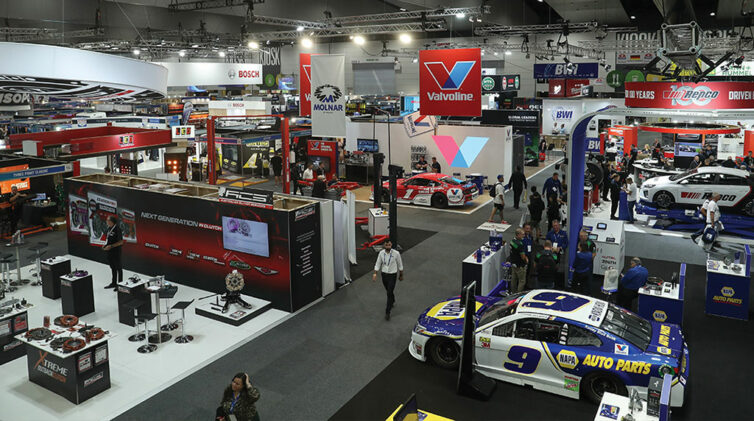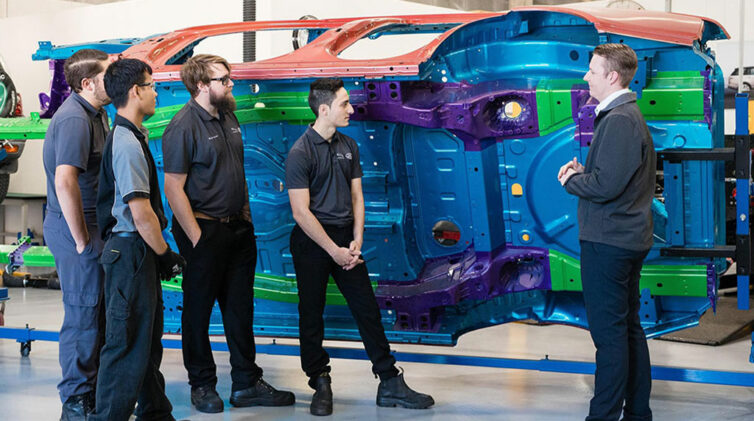
Geoff Gwilym
THE Victorian Automobile Chamber of Commerce (VACC) has thrown down the gauntlet to universities, saying that a career starting out in an auto workshop can lead to greater success in life than being armed with a couple of university degrees.
According to VACC executive director Geoff Gwilym, the auto retail service and repair sector (RSR) currently looks after more than 17 million vehicles, is growing rapidly, experiencing massive staff shortages and any prospect of less demand in the sector from servicing electric vehicle is years away.
Taking an optimistic view of a career starting out in an auto workshop, Mr Gwilym said there was a need to change the “myopic” view on universities versus the trades.
He said that if the automotive RSR sector was to ever get on top of the chronic shortage of apprentices entering what is an otherwise expanding industry, parents, governments and in-school careers advisors needed to change their attitudes towards the trades.
He said the Australian car parc is growing at more than 400,000 vehicles a year and pointed out that the RSR sector would not be affected by advancing technologies until electric vehicles start selling in massive volumes.
Mr Gwilym said that the RSR sector was “not at a tipping point”.
He told GoAutoNews Premium during last weekend’s VACC Industry Awards and Centenary Gala at the Palladium ballroom at Crown: “One of the fallacies around automotive was that manufacturing was king. But manufacturing was less than one fifth of the automotive industry in Australia in terms of employment.
“The retail, service and repair sector is still the biggest single component of the industry. It will continue to be for some time,” he said.
A VACC survey conducted last year showed that the RSR sector had annual revenues of $24 billion, comprised 79,000 businesses and employed 370,000 people.
“The annual growth in the vehicle fleet will maintain the same number of people in the industry for some years. Until we get mass (sales of) electric vehicles that will, generally require less mechanical intervention, we will still need 97,000 mechanics nationally to keep our vehicle fleet running.
“We sometimes hear about doom and gloom in auto (RSR) from some sources (but) it’s not well founded. If you look at the data around auto, the number of businesses has been relatively stable and has been for a very long time.”
However, despite the size and stability of the RSR sector, Mr Gwilym said dealers and workshops were still having trouble finding enough recruits to staff the industry.
“The problem we have at this moment is there are 7000 job vacancies in Victoria alone that are unfilled in the automotive industry.”
He contrasted that with the current youth unemployment rate of 10 per cent in the state.
“It doesn’t make sense. We have demand and we have supply, Mr Gwilym said.”
He said the problem was with governments, schools and parents who have all been telling kids to go to university; that it was the only career option.
“Our challenge is to stop telling kids to go to university and get a double degree so they can be a barista. We need to start telling kids to get a trade, get a career, get into a job that has got multiple opportunities at the end of it.”
Mr Gwilym said that, just because you start a career in the workshop does not mean that’s where you will always be.

“I have been around the world talking to guys in trade jobs and they go from trades to management to senior executive to owning their own businesses; thousands and thousands of them.
“Our job is to tell that to young people that you can come into automotive to start your future. You don’t come into auto to do the same thing for 30 years. An apprenticeship is the beginning of a journey.”
Changing the general perception of apprenticeships will take a lot of work he said.
“We’ve got to get the government – and school career advisors – to stop telling kids that the place to go is university. And parents,” Mr Gwilym said.
“As parents we have all been guilty of suggesting that they should go to uni, that they’ll be better off.
“Well, I’ll tell you now the employment outcomes for apprentices are higher than for university students because they are all employed. Lifetime employment.
“Auto apprentices, when they finish their apprenticeships, are generally immediately employed. That’s not the case for university graduates.
“So, we have university graduates beaten on employment. Automotive apprenticeships and people in the auto industry have a lifetime of employment.
“We’ve been in a skills shortage in the automotive industry for 20 years. If you are a qualified automotive technician – body, paint, panel, electrical, mechanical – and you can’t get a job, it’s not the industry’s fault. There are plenty of jobs in the industry.”
The winding down of technical education in schools has forced the VACC to step in to help fill the void. It invented the world’s first group apprenticeship scheme and now directly employs more than 500 apprentices in Victoria and Tasmania.

These apprentices are then placed with dealerships and workshops and can be moved around according the workload in those workshops to give them wider experience in the RSR sector.
Mr Gwilym said state governments should do more than just talk about career options.
He said the causes behind the current shortage of labour in the trades and the poor social perception around the trades started decades ago.
“We had a horrible period where trade training in schools was evaporated,” Mr Gwilym said.
“We need to be really committed about technical training in schools, in every school, not in some schools. Every school should have a tech wing. It should have kids in there playing around with wood, with metal, with plastics, with new technology, finding out what they like.
“Then they will also learn to use their psycho-motor skills, learn to use their hands so that when they buy a house or when they rent somewhere and they want to put up a shelf, they know which end of the screwdriver goes into the screw head.
“It’s not just about the trades. It’s about having kids who are practical and having kids who can actually fix things. We have lost that”
Mr Gwilym was speaking just days after Telstra announced it would be cutting thousands of white collar jobs in the next year or two.
“You don’t see very many mechanics who are unemployed. You don’t see many panel beaters that are unemployed. I don’t know any unemployed spray painters. A really good spray painter can earn really, really good money.
“The other thing is, those tech skills are portable. You can take those technical skills to maintenance jobs.”
By Ian Porter













 Read More: Related articles
Read More: Related articles

